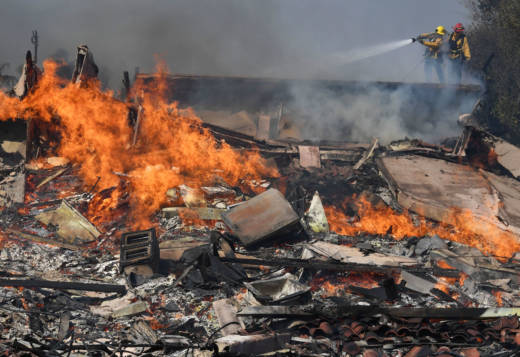As 17 fires burn across the state, California’s legislature is grappling with what it should do to help residents cope with blazes. The most controversial question facing the state is deciding who should pay when power lines touch off destructive blazes.
That has set off a huge political fight in the state capitol. On Thursday, lawmakers heard hours of testimony on a proposal by Governor Jerry Brown to tweak state liability laws.
Currently, utilities can be on the hook financially for fires even if they weren’t negligent in maintenance. Brown isn’t proposing a complete repeal of the liability laws, but he wants to throw the question to the courts. He wants judges to weigh the benefits in each case of the electrical equipment that caused the damage against the harm caused to property when deciding who is liable for damages.
It’s a very real scenario. State fire investigators have found Pacific Gas & Electric, the state’s largest utility, responsible for 16 of last year’s devastating Northern California wildfires. Those fires killed dozens of people and destroyed thousands of homes.
On Thursday, a representative of the governor told lawmakers that the change would bring the electric industry in California more in line with flood control districts, which aren’t forced to pay for property damage if they followed state safety laws and regulations.

